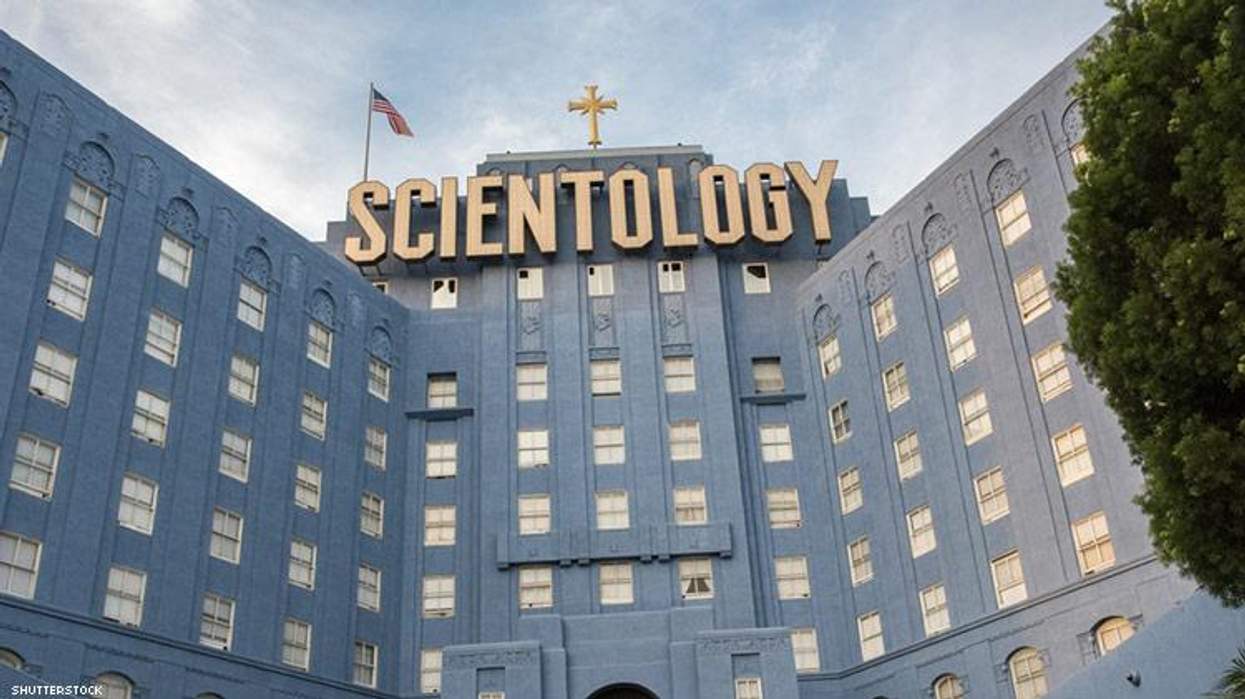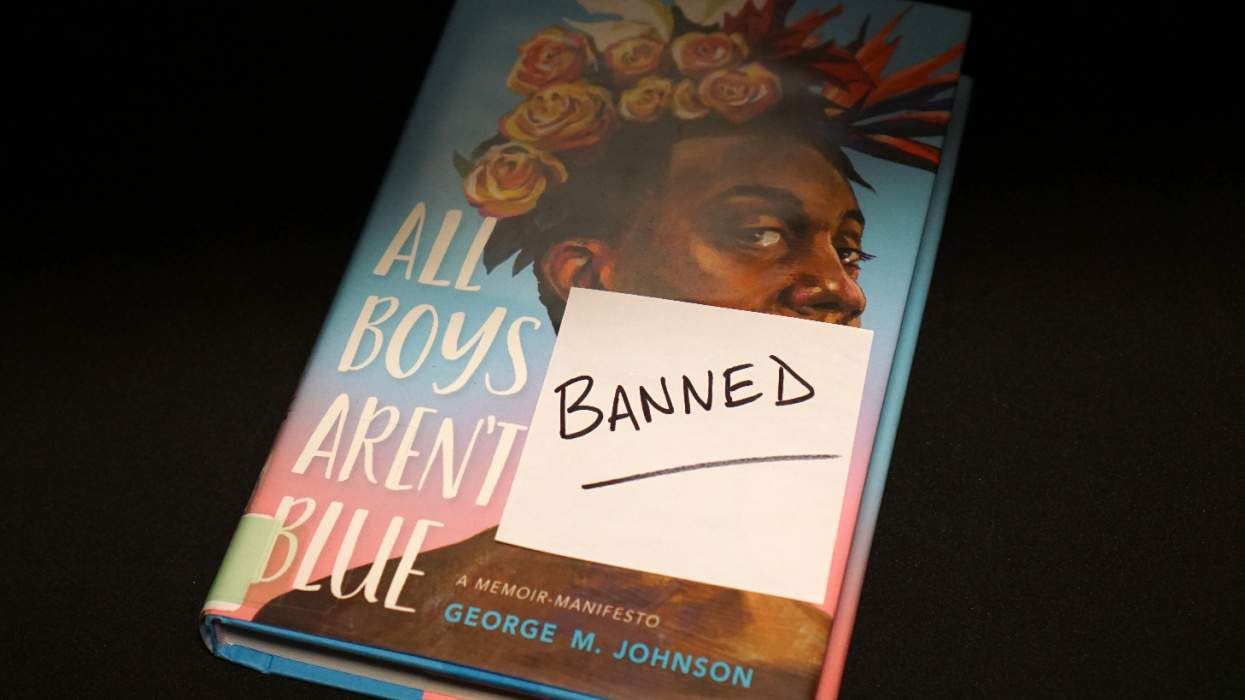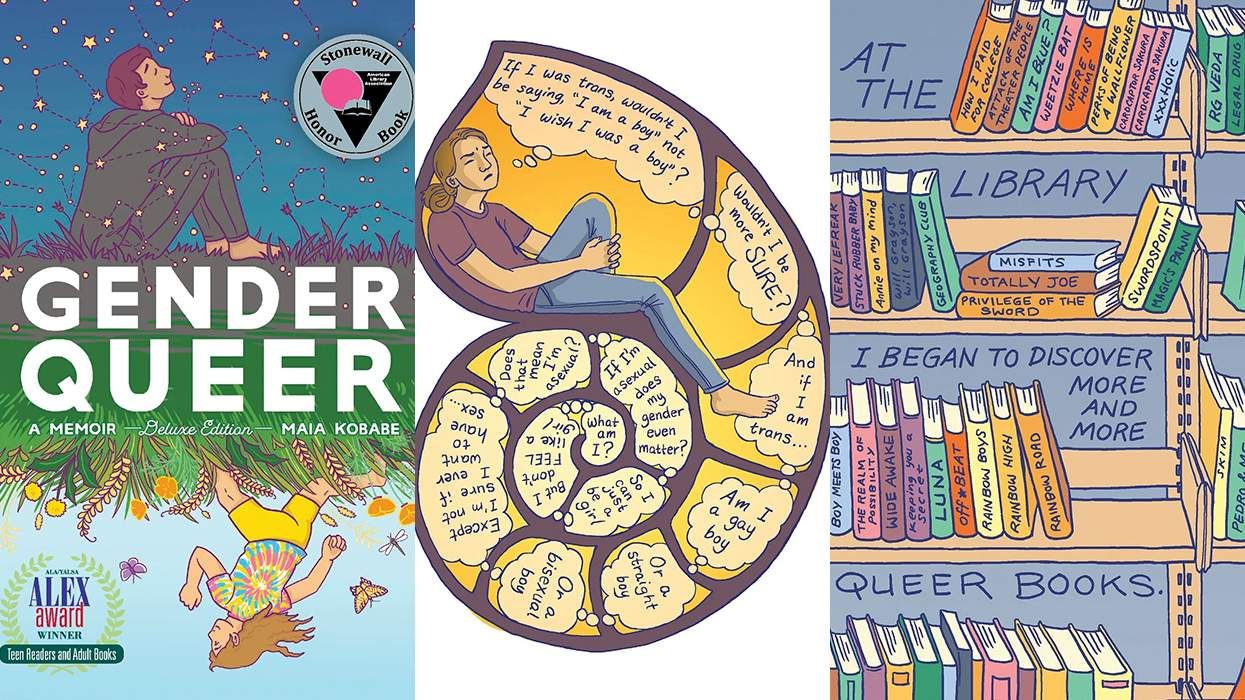In the months since our meeting in February, Charley and I had regularly gotten together for coffee or lunch or an afternoon glass of wine. We had so much in common, so much to talk about. I looked forward to those meetings, hearing about her career and what she was working on, and she encouraged me to talk about mine.
I told Charley about Not Forgotten, which had premiered in the U.S. to positive trade reviews and was lined up for international distribution. My business partner Dror had suggested we keep the momentum of our success going by investing in new projects, which he was in the process of looking for.
(RELATED: This Lesbian Escaped Scientology. She's Now Ringing the Alarm)
During one of our conversations, Charley mentioned Twist, a musical she was working on with a famous actress, director and producer. Might a play be something Dror and I would be interested in producing?
She gave me the script, which I read on a flight from California to New York. The play was an African-American take on Dickens's Oliver Twist, and I fell in love with it. I shared the script with Dror. It wasn't a movie, I said, but Charley needed investors and this seemed like something we could get behind.
It took a bit of convincing on my part, but Dror agreed that by investing in Twist we could maintain the buzz about our partnership until he found a new film project.
Our shared interest in Twist gave Charley and me more reason to get together. I loved hearing her stories about growing up in rural Mississippi. Her family was wealthy and she had been raised by a black nanny named Vergie, whom she adored. It was Vergie, she told me, who'd helped her to develop her keen social conscience. Even as a little girl, she had taken a stand against racism. Defying her father's orders, she once stood up to a restaurant owner who didn't allow blacks by taking her dinner outside to the back steps to join Vergie. By the end of the year, we were seeing each other almost every day. Our conversations had gotten more personal over time. Charley confided in me that she was contemplating leaving Maria. Tensions had been building between them for a long time and neither one was happy. The stories of their marriage reminded me of my own. Charley said Maria had a jealous streak and a nasty temper. She often lashed out, sometimes physically. Charley hadn't told anyone else about her marital problems. She was too embarrassed to admit another failed relationship. She had told Maria she wanted out and moved to the guest room with the intention of looking for her own place when she had time. Maria was in denial about the split, but Charley felt it would be best for both of them, so she was determined to see it through.
I lifted my water glass for a toast. "Amen!" I said. "Been there. Done that. And my life is so much better now. I'm here for you, Charley. I know this is hard."
Just before Christmas, Charley invited me to lunch at the tearoom at the Beverly Hills Montage Hotel. Her longtime entertainment attorney, Elaine Rogers, was coming to town from Boston, and Charley wanted me to meet her.
The Montage is a hip, swanky place in the middle of Beverly Hills. It was one of my favorite places to take clients. I walked in a few minutes late and joined Charley and Elaine at a window table overlooking the hotel courtyard. We settled into a comfortable conversation, talking and laughing and enjoying ourselves. At one point, I sensed someone watching us. I wondered if the person was looking at Charley. I'd noticed that sometimes people stared at her, even though it was 2009 and we were in freethinking Southern California. She was masculine in her dress and her demeanor, and sometimes I was self-conscious when I saw someone looking at her. Were they judging her? Judging me?
Charley excused herself to go to the restroom and I took the opportunity to look around. I glanced over my shoulder and saw a couple I knew from the church. Sarah and David Ehrlich were wealthy, high-level Scientologists from Beverly Hills. When Charley walked past their table, both made a point of looking her up and down, from her short mannish haircut to her polished wing-tip shoes. Once she passed, they began nattering to each other. It didn't take much imagination to guess what they were saying. Stay clear!
When Charley returned, I took my turn to go to the restroom and made sure I stopped to greet the Ehrlichs.
"What are you doing here?" Sarah asked, as if she hadn't seen me. "I'm here for a business meeting," I said.
"Oh!" she said. "Well, who are you meeting with?"
I knew why she was asking. At that moment, I felt so protective of Charley. Who were those smug, sorry-ass people to judge her?
"A friend in the music industry and her attorney."
"You really should be careful, Michelle," he said. A wave of righteous anger swept over me.
"Thank you, David, but I don't think I asked you for your opinion, did I?" With my voice steady and a smile plastered on my face, I added, "I don't think I need your opinion. I think I do pretty well on my own. Don't you?" With that, I returned to the table.
Excerpted from Perfectly Clear by Michelle LeClair and Robin Gaby Fisher, courtesy of Penguin Random House.















